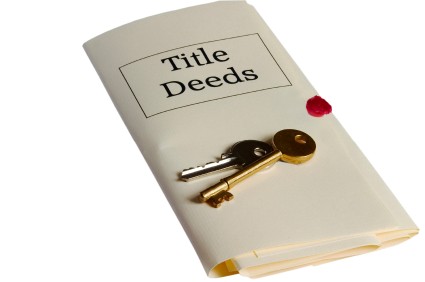Losing Title Deeds to a property can be a costly occurance. The obvious solution to this situation is to keep your house deeds and other important documents in a safe deposit box. But what happens if you have not been so careful and you lose them? The good news is that they can be replaced…..the bad news is that it can be an expensive and time-consuming affair.
Firstly, get in touch with the Land Registry (now called The Property Registration Authority) www.landregistry.ie or their online service www.landdirect.ie. Given that you will be carrying out some searches it may be best to go to the Land Registry Office yourself and they will help you.
What you need to do is as follows:
- Check the Register (an index of names of registered titles which will have the corresponding address of the property and the Folio number – like a car registration number). See if your name is registered as owner. If so requisition a copy of the folio with a copy of the file plan (map). This will be your main document of title.
- If you are not registered check any other persons name the title may be in (Spouse/Parent etc.) and follow the same procedure.
- If none of your family members (or other relevant names) are registered, go to the Mapping Section of the Land Registry and look for the property on the map. There should be a corresponding Folio number with the title map.
- If there is no corresponding mapping entry, it is probable that the type of title is a very old one called ‘Unregistered Land’ title – this is usually represented by a large amount of deeds (which are now, of course lost). There will still be records of these Deeds and the Registry of Deeds section of the Property Registry Authority will be able to help with searches for those records which are called ‘Memorials’. You should requisition certified copies of these.
This process could take anywhere from 5 minutes up to 4 hours or so but you should get what you are looking for and that will reconstitute the basic title.
Next in line is Planning Permission Documentation. If the property is considered old and there have been no extensions or other developments to speak of since 1964 then no planning documents will be required.
This will see the title about 95% reconstituted and if you ever come to sell the property, the rest of the documentation (certificates of roads being in charge etc) can be dealt with in the sale process.
If in all of the searches there is no record of your name (or indeed other relevant names) being registered, then a new deed will have to be created and that is a matter for a solicitor…this is where things can begin to get expensive. It will be important to take early action if this is the case because stamp duty will have been paid and the Revenue will have to be contacted while they still have the records of payment. The cost of the new deed(s) should be borne by whoever is responsible for losing the deeds – there should be a paper trail about this because every time deeds are sent from one office to another (say from a solicitor to a building society), a detailed receipt setting out each document sent is prepared and signed on delivery. The last office having signed off on one of these receipts is legally presumed to be the last custodian of the deeds and is responsible.
It is important to note that the above guide is designed to give you a starting point upon which you can begin to replace lost deeds. Every situation is different and hopefully the above will start you on the road to replacing lost title deeds.
The pro-active way to prevent this occurrence is to store your deeds in a safe deposit box – you can rent your own safe deposit box with Cork Vaults from as little as €199 per year with 7 day access.
Contact Cork Vaults on: (01) 254 7900 or email: [email protected]




